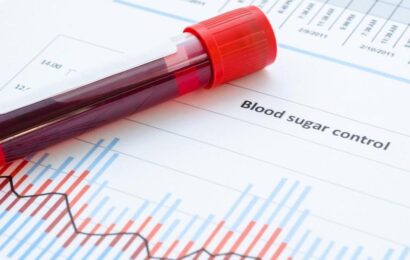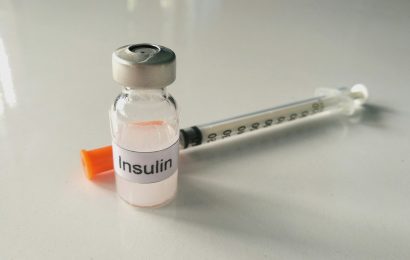If you’re one of the millions of Americans who is trying to lose weight (or not gain weight), chances are, you keep an eye out for any mention of that truly miraculous pill/potion/magic wand that will make the weight disappear. Well, I hate to disappoint, but that hasn’t appeared just yet. However, there IS a lot of research going on in the field of weight management, so this week, I thought I’d take the opportunity to share some of the latest updates and developments.
Live longer with a few more pounds?
A government study released in early January stirred a bit of debate among health experts. Researchers at the National Center for Health Statistics, which is part of the Centers for Disease Control (CDC), reported that people who are “moderately” overweight (by up to about 30 pounds above normal) have roughly a 6% lower risk of dying early than folks at a normal weight. However, those who are very obese (60 or more pounds above normal) have a 29% higher chance of dying early than normal weight people.
So is being a little overweight actually a good thing? Some experts say that it may be OK, because there are people who are technically overweight according to their body-mass index (BMI) who actually carry more muscle mass (think of a football player, for example), which is a good thing.
But other experts, such as Walter Willett from the Harvard School of Public Health, denounced the study, saying that the normal weight people in this study were a mix of people who were active, smokers, people with cancer, and frail elderly folks. He explained further that two other studies that controlled for the effects of various health conditions on body weight clearly showed that being overweight or obese is linked with a higher risk of death.
Tiny bites lead to greater weight loss
Do you take big gulps of your food? Do you chug down your beverages? You may want to rethink those behaviors. Researchers from the Netherlands gave 53 people some soup and noticed that those who took small sips of soup ate about 30% less than those who took bigger sips, and that people who were paying attention to what they were eating tended to eat less as well. The lesson? Take tiny bites and don’t get distracted by, say, watching Downton Abbey; focus on what and how much you’re eating and you’ll likely end up eating less.
The early bird gets the worm
Are you exercising but the scale isn’t budging? Set your alarm for earlier and try working out in the morning. In a study published in the British Journal of Nutrition, 12 men jumped on the treadmill at 10 AM either having eaten breakfast or not having eaten since the night before. After exercise, all of the men drank a chocolate milkshake and then later were given pasta for lunch.
The men who exercised in a fasting state burned 20% more fat than the men who had eaten breakfast before exercising. Also, neither group of men overate at lunch (dispelling the myth that exercise makes you hungry). The researchers concluded that you might benefit more if you can exercise first thing in the morning before eating. But if that’s not possible, don’t despair: You’ll still get plenty of benefits exercising at whatever time is best for you.
Early lunchers lose more
When it comes to weight loss, when you eat may be just as important as how much you eat. A study done in Spain, where the main meal is the mid-day meal, revealed that people who ate lunch before 3 PM (considered early in Spain) lost 22 pounds in 20 weeks compared to 17 pounds in people who ate a later lunch. Also, the late lunchers ate fewer calories at breakfast and were more likely to skip breakfast; they also had lower insulin sensitivity, which is a risk factor for diabetes. Most Americans eat their main meal at dinner, not lunch, but the study findings could still apply. The study authors believe that eating late could hinder weight loss, and getting more of your calories earlier in the day could do just the opposite.
Gastric banding keeps the weight off
The decision to have bariatric surgery, such as gastric bypass or gastric banding, is not to be made lightly. But the encouraging news is that people who have had gastric banding (whereby a silicone “band” is place around the top portion of the stomach to help slow the passage of food to the lower portion of the stomach) kept off 50% of excess weight up to 15 years after the procedure, according to an Australian study. Gastric banding may be safer than the more traditional gastric bypass surgery, too, although people who’d had a bypass were not included in the study.
Fork it over
The fork may have just received some newfound respect. The HAPIfork is an electronic fork with a brain. If you begin to eat too fast, this fork will light up and vibrate. It also keeps track of how long it takes you to eat a meal, the number of times per minute that you put food into your mouth, and the time between bites. You can download your “data” for analysis and work on problem behaviors. If you’re a speed eater, this fork may be for you. For more information, go to www.hapilabs.com.
Pump your food out
Perhaps one of the more interesting innovations is a new device called the “AspireAssist” created by three physicians. AspireAssist is a tube that is implanted into the stomach that leads to a port at the skin’s surface. At the end of the port is a valve that allows the person to empty out his stomach contents into the toilet. Because a person needs SOME food, the recommendation is to wait 20 minutes after eating a meal and then disappear into the bathroom to complete the aspiration process, which will remove about one third of what the person just ate. People should aspirate three times a day for best results. People can eat what they want, and according to trials conducted by the manufacturer, people can lose about 50% of their body weight in 12 months. AspireAssist is available in parts of Europe, but it is not approved in the US at this time (perhaps for good reason!).




